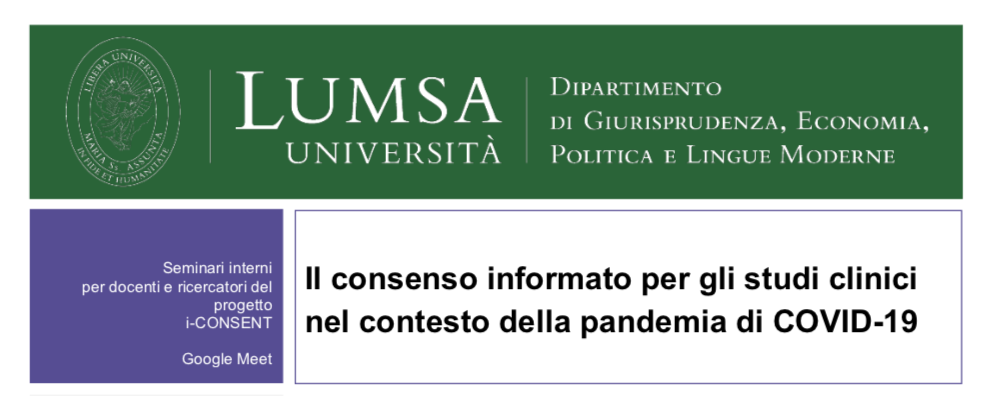Summary of the first session of the i-CONSENT’s conversations on informed consent in the context of the COVID-19
In his lecture on Monday, November 16th 2020, Dott. A. Addis stressed the importance of conducting a sound and robust scientific research, to counteract the negative effects of the rapidly evolving spread of COVID-19.
Clinical research is in fact crucial in facing COVID-19 pandemic health impact. However, even in the emergency setting due to a pandemic, scientific, ethical and legal requirements of biomedical research must be respected. No matter how extreme the conditions are, informed consent must be taken into account to the extent possible so to ensure that those who decide to participate in the research can effectively understand risks and potential benefits, and make informed decisions.
He underlined that the so called “regulatory flexibility” in the context of the current pandemic aims at guaranteeing the accomplishment of all the requirements for clinical research, alongside with accelerating as much as possible the process for scientific and ethical evaluation of clinical protocols concerning treatments for and vaccines against COVID-19. This aim has been realized at international and national level, for example establishing scientific, regulatory and ethical bodies with the specific task of evaluating the scientific and ethical level clinical studies related to COVID-19.
As far as the information process is concerned, he stressed the importance of communicating risks and benefits in a clear and transparent way to potential participants; in addition, communicating scientific uncertainties related to the still scarce existing scientific knowledge about COVID-19. In particular, in trials for COVID-19 treatments, the best available standard of care should be guaranteed to all the patients participating in the trial. The identification of the standard of care, although difficult to determine, as there is no available therapy/treatment for COVID-19, is a crucial ethical requirement for the study design and therefore for the information to the patient.
In addition, he considered the existing general pressure for accelerating research in order to obtain as soon as possible useful results for counteracting the COVID-19 pandemic. Researchers should carefully balance communication through social media of partial or in progress scientific results. This aspect is recommended in order to avoid the spread of so called fake-news that can result in disinformation or even in slowdown of research itself.
Dott. A. Addis is member of the Italian Scientific Technical Committee on COVID-19 of the Italian Drug Agency (AIFA).
